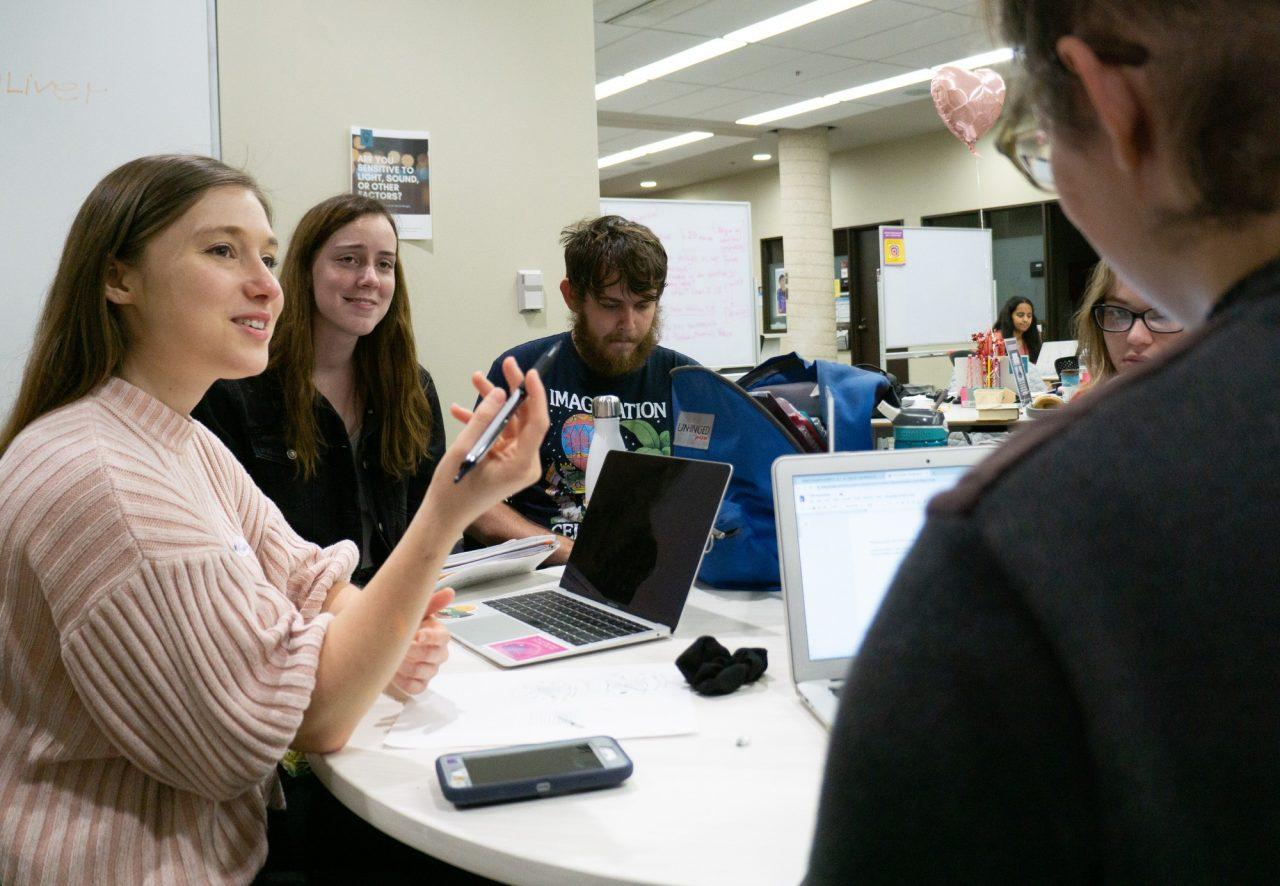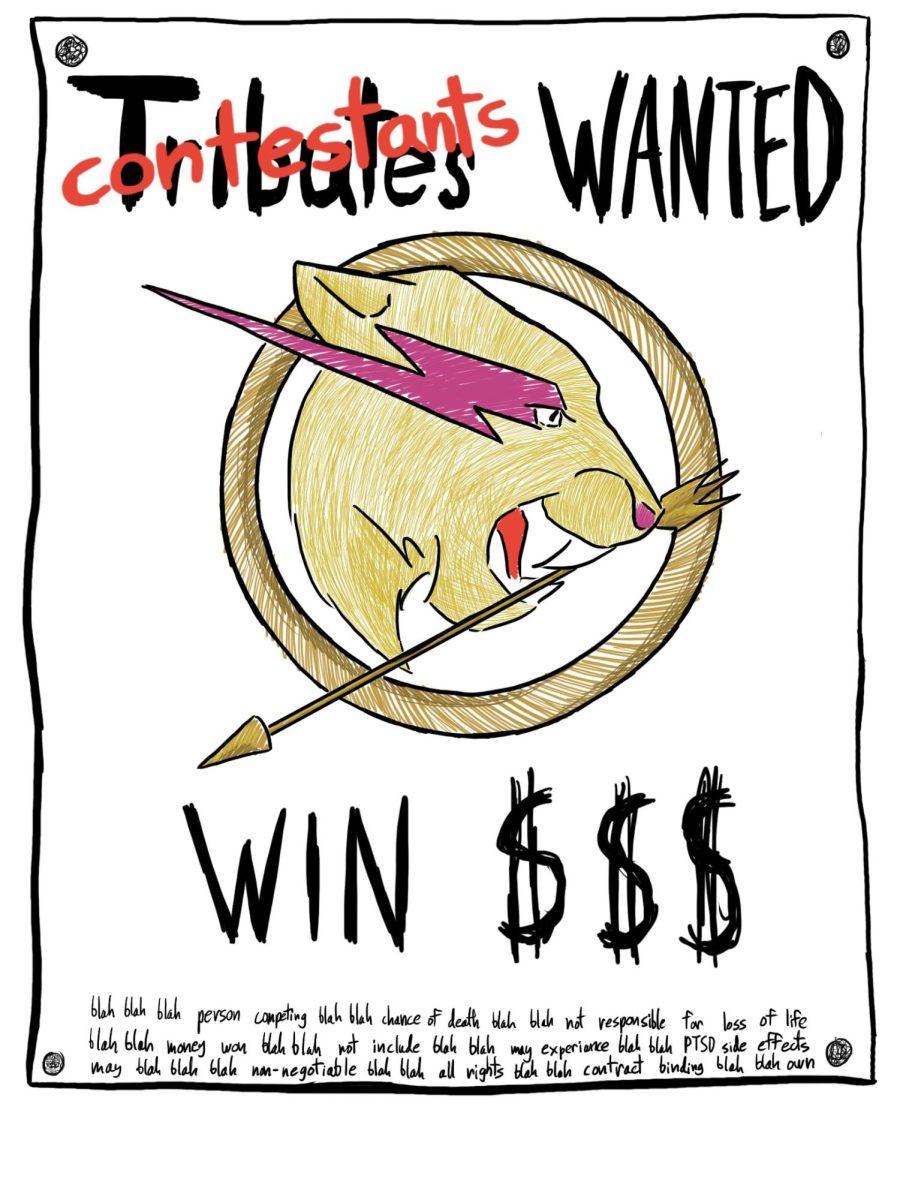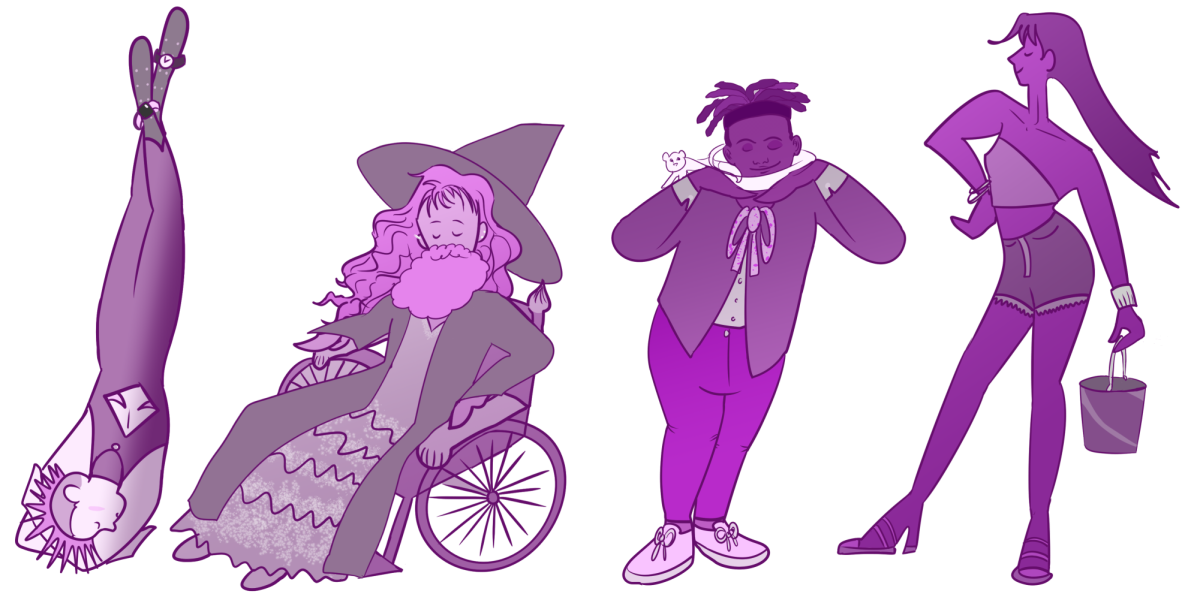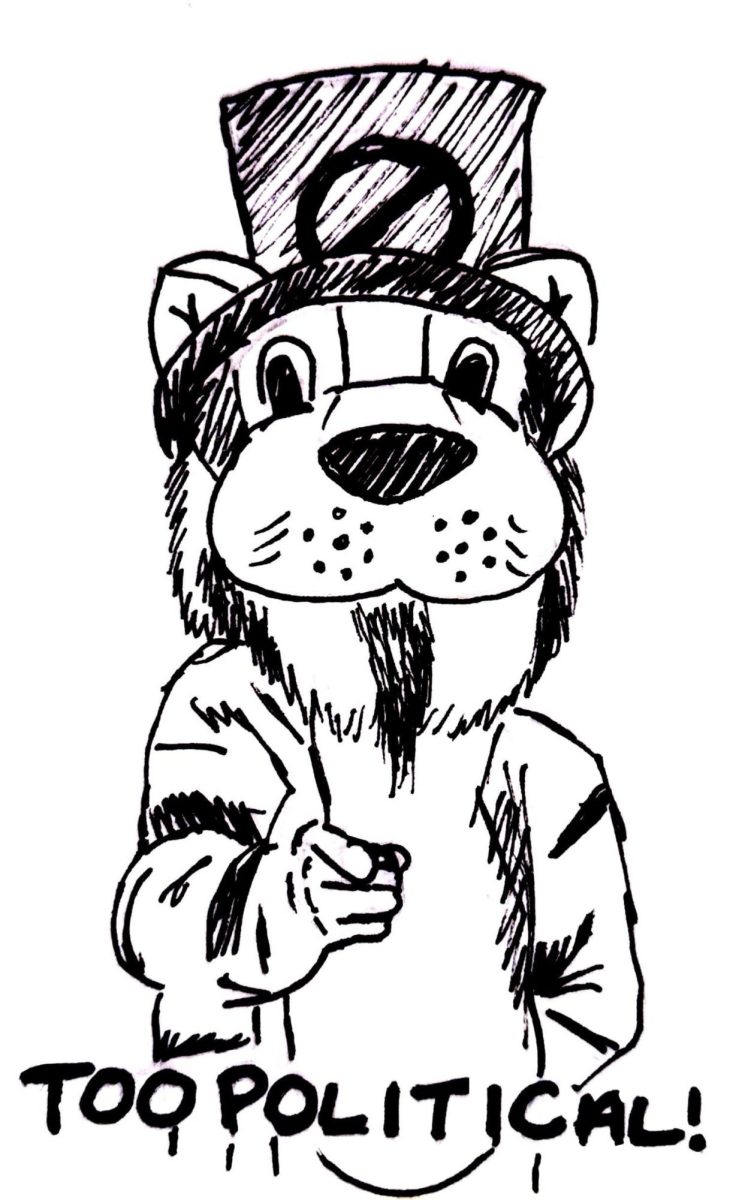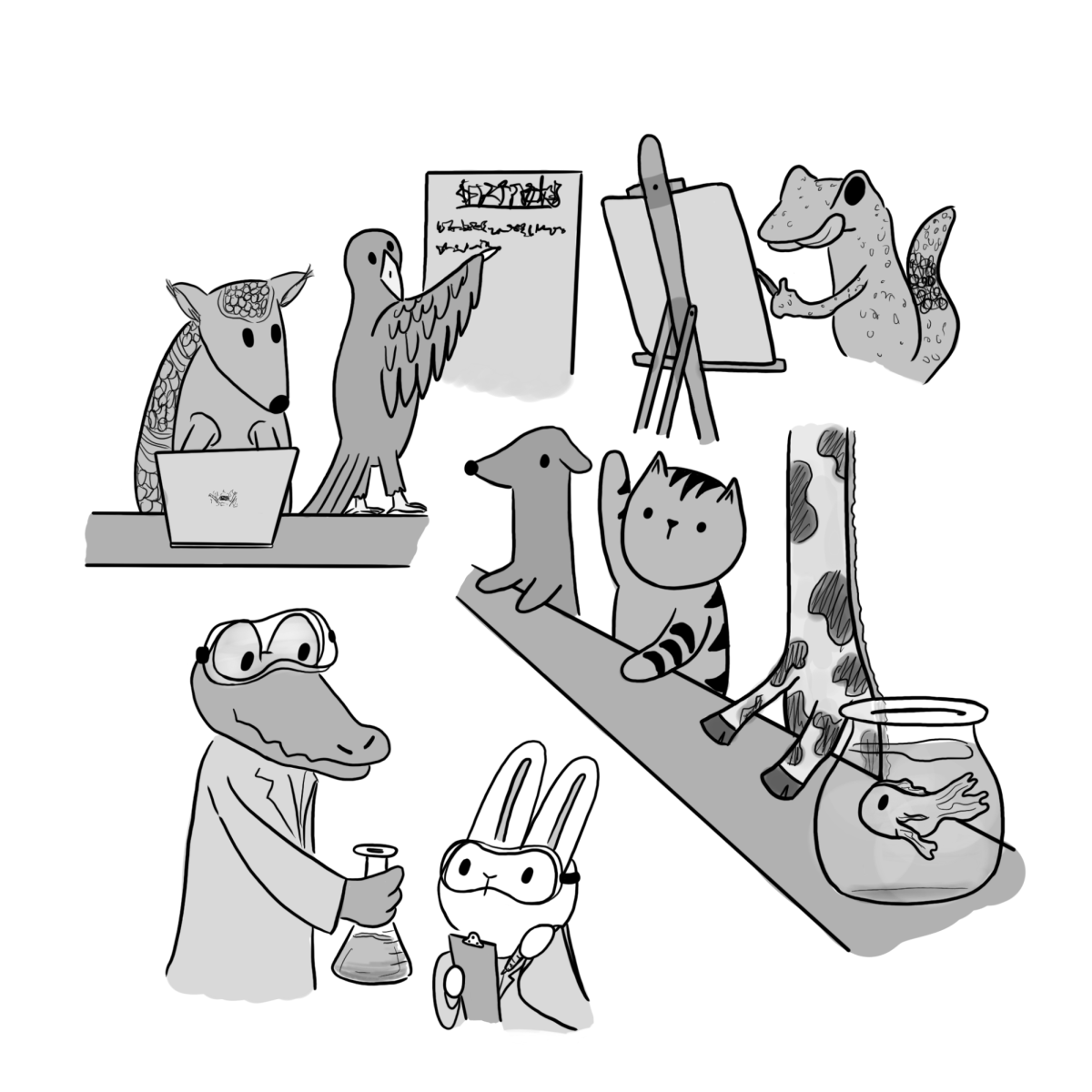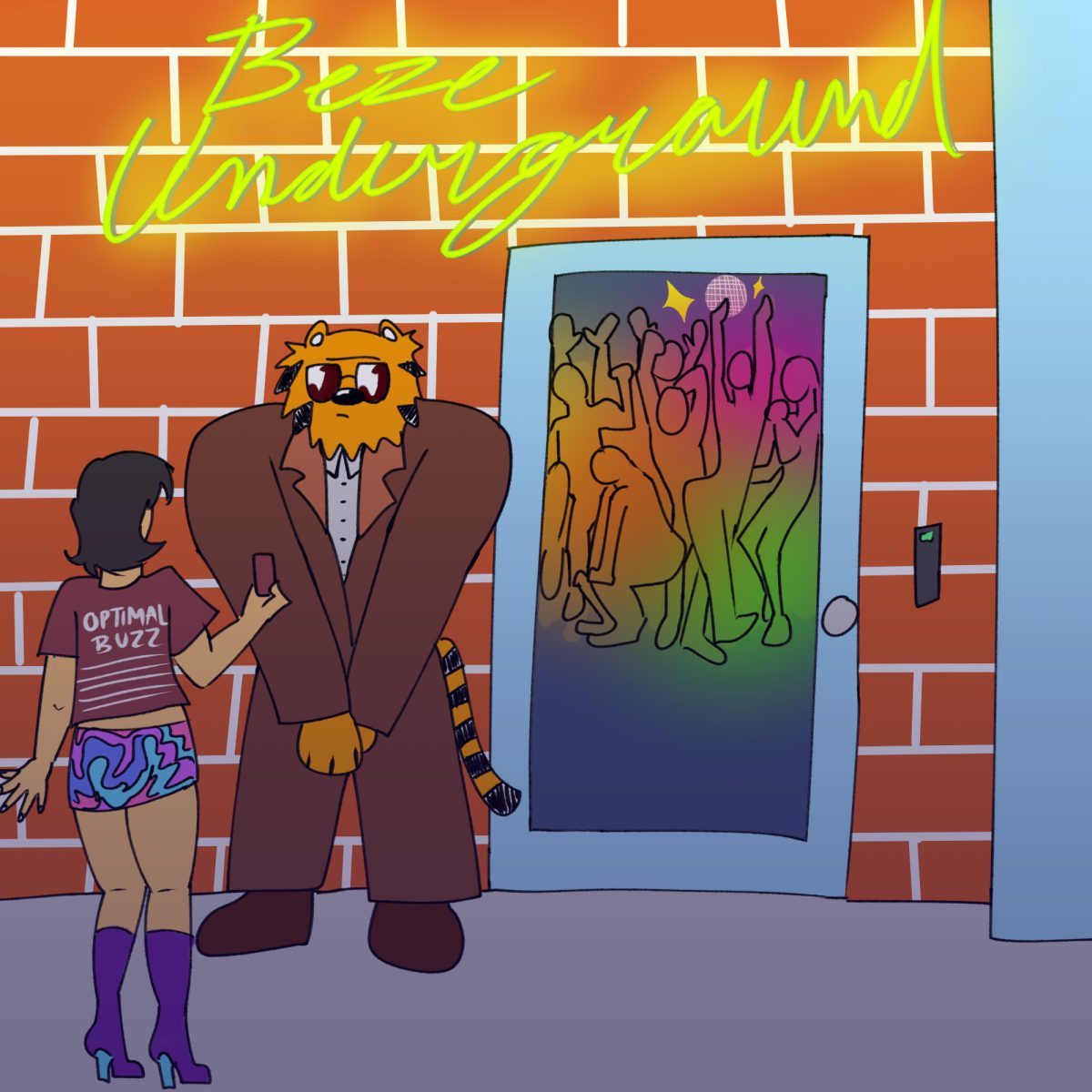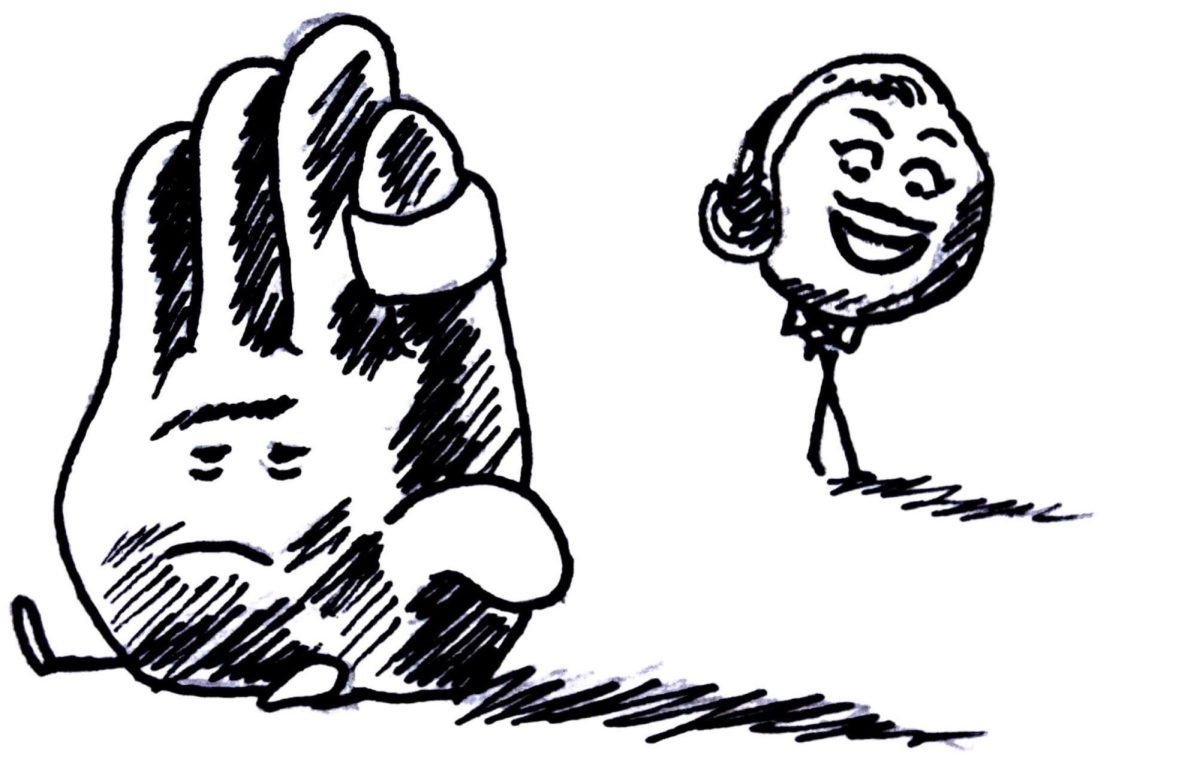Photo by Kate Nuelle
Seniors Ari Fletcher-Bai and Robin Bissett recently started holding an hour-long writing session in the Tiger Learning Commons at 7 p.m. on Mondays. Both creative writing minors, Fletcher-Bai and Bissett sought to create a creative writing community at Trinity that reflected the active writing community of San Antonio. After being prompted by a professor to promote the creative writing program at Trinity, the two decided to start the Writing Hour.
What do you like about creative writing?
Robin Bissett: A lot of writers are introverts, but through your writing, you can meet people and discover things that you have in common or similar experiences that you have with people that you might not have known otherwise. I’ve been writing for a really long time ,and it just feels wrong if I don’t do it.
Ari Fletcher-Bai: I think writing is interesting to me because language is such a human thing. It’s the way we process the world and make sense of it. Writing, for me, has always been a way for me to make sense of the things I don’t understand.
What types of fiction do you specialize in?
RB: I focus on flash fiction, which is fiction that’s between 300 and 5,000 words. I’m taking a creative writing class right now that focuses solely on flash fiction, and it’s been really interesting to try flash fiction because each word weighs more than in regular fiction stories. With flash fiction, instead of having a long, descriptive opening, the writer has to get to the point. It’s really testing and strengthening my writing in different ways.
AF: I write a lot of Gothic. I’m really interested in how gender and the modern age have kind of estranged us from each other and the hidden horror of things we might have accepted as normal but are actually sort of horrific.
What’s the hardest part of the writing process for you?
RB: You can feel kind of alone in the writing process, like ‘I can’t show this to anyone.’
AF: Yeah, you might be by yourself and trying to figure something out, but you have no reference point. Whereas, if you have a friend to bounce ideas off of or someone who understands where you’re trying to go, it’s a lot better.
What made you want to start the Writing Hour?
AF: I kind of struggle to just sit down and write, and every author that has come to talk about their process says how important it is to write every day. It’s hard to be disciplined about that. We wanted to have an hour a week where we could come together and hold each other accountable but also joke and laugh.
RB: Ari and I have both found a lot of value in having a writing community. There are a lot of writing opportunities off-campus, but we noticed that Trinity didn’t have a place for writers to gather and meet up to attend writing events.
What does the Writing Hour consist of?
AB: Last time, we had a loud table and a quiet area. The loud table was more for joking and talking about how you come up with a name for a second-grade teacher that the classroom might think is funny but the teacher might not get. Then we have the quiet area where people sit and do their own thing.
RB: People can bring continuous projects or something new each time to work on. We also have prompts for people who want to start writing.
AF: And the nice thing about having it in the TLC is that Robin is working [as a Writing Center tutor] during that time, so you can always pop on over to the writing center and have her edit your work.
What do you hope to accomplish with the Writing Hour?
RB: After we graduate, I hope that they continue the writing hour. I also hope that they continue to facilitate a creative writing community here on campus and off-campus.
AF: I’m really excited to start to build a real creative writing community here on campus. It’s nice to just have a group of people to help you navigate writing events or poetry slams. It’s really important to me. I know that it’s going to take work and take a while, but we have a good group, though we want more people to come.

